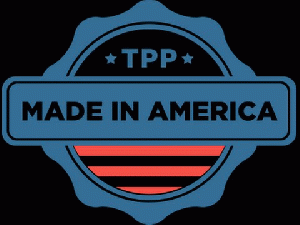Reprinted from Smirking Chimp
The connection between Silicon Valley and Detroit (sorry Detroiters) comes in Article 18.78, which requires countries to have laws allowing companies to protect trade secrets and imposing criminal penalties for violators. The language in this section is broad, but it can certainly be interpreted as implying that governments allow for the enforcement of "non-compete" agreements. Non-compete agreements prohibit employees from quitting their job and working for another company in the same industry for a substantial period of time.
This is an important issue for tech companies. Many states allow for the enforcement of non-compete agreements, which companies often put in contracts both to limit their employees' mobility and also to try to impede competitors. Importantly, California does not. A recent study found that the difference between California's law and Michigan's law, which does enforce non-compete agreements, was an important factor in California's success in the technology sector. Unlike Michigan, it is easy for tech workers in California to quit their jobs and join a new company or start their own.
If it sounds strange that a 21st century trade deal would have language that could deny workers the ability to change jobs, then you weren't paying attention to how the TPP was negotiated. The Obama administration created 21 working groups to help draft the chapters dealing with specific areas. Each working group was dominated by representatives of the major corporations in the affected industries.
The tech industry undoubtedly had major input into the drafting of chapter 18. While it may be bad news for workers, the industry and the economy, the big tech companies are happy if they can keep workers from going to a competitor or starting their own company. In fact, many of the Silicon Valley giants actually joined together in an old-fashioned wage-fixing deal where they promised not to hire each other's workers.
This violates current law, and these companies had to pay hundreds of millions of dollars in penalties, but that is why we have trade deals like the TPP. When companies can't get the legislation they want through Congress or state and local governments, they do an end-run and try to advance their interests in a trade deal like the TPP. In addition to the fact that provisions of the TPP are harder to reverse than ordinary laws, corporate interests also get to impose them on the other countries in the deal.
The restrictions on trade secrets are not the only anti-growth provisions in the TPP. The deal also requires stronger and longer copyright, patent, and related protections. These protections raise the price of the protected items in the same way that tariffs on imports raise prices. The big difference is that copyright and patent protection is typically equivalent to tariffs of several thousand percent, not the single digit tariffs on other items that are being reduced or eliminated in the TPP.
While most proponents of the TPP have opted not to look at the cost of these forms of protectionism it is likely to be substantial. The New Zealand government estimated that increasing the duration of copyright protection from 50 years to 70 years, as required by the TPP, would cost it 0.024 percent of its GDP annually, the equivalent of $4.3 billion annually in the United States.
This is the cost of just one small provision in a country that already has strong copyright protection. The costs would undoubtedly be much larger in countries like Malaysia and Vietnam, which don't currently have strong copyright protections.
The TPP also requires that countries have criminal penalties for copyright violations. At a time when there is a bipartisan consensus to reduce the size of the prison population, President Obama wants to throw people in jail for circulating unauthorized copies of Batman movies or Taylor Swift songs.
And of course, there are the provisions for the pharmaceutical industry that make patent and related protections stronger and longer. In the United States we spend more than $420 billion a year (@ 2.2 percent of GDP) for drugs that would likely sell for around $40 billion a year in a free market. The goal of the TPP is to make the other countries pay as much as we do, and to lock in place indefinitely high drug prices in the United States. In addition to slowing growth, these protections will also jeopardize public health.
In short, the TPP as a modern "free trade" deal is the happy talk the industry groups and their allies will put forward to sell the pact. In reality, it's about advancing corporate interests and free trade has nothing to do with it.






